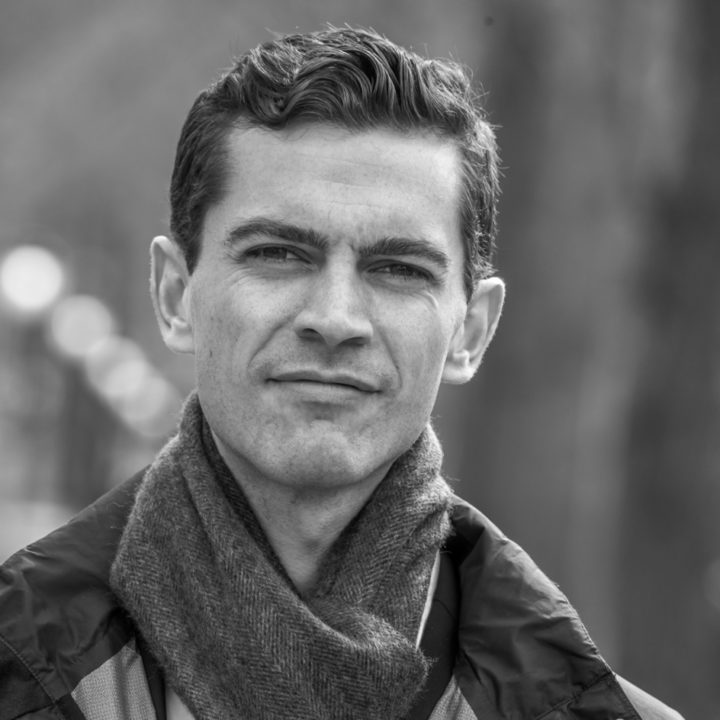A recent debate in twitter’s climate community illuminated a schism between those arguing that mitigating climate change is impossible and those exhorting others to continue to “fight” climate change. While the debate yielded no definitive answers, it brought up important questions for those who’ve focused their life on addressing this issue.
What does it mean to “fight” climate change today? Is mitigation really impossible? How would we know? If we want any chance of winning the fight, we have to confront which parts of it may be “impossible” to win and we have to have a sense of what it really means to “fight climate change.”
Let’s start with what’s impossible. Take one sector of the economy that needs to be decarbonized: food. Food is heavily petroleum dependent in growing, processing, and in its complex supply chains. Basically every single calorie consumed by someone in the Global North (and much of the South) is derived from petroleum, either at the point of production or by being moved around in planes, trains, and ships. What would it take to decarbonize industrial agriculture?
First, we would have to stop using petroleum-based fertilizers and petroleum-derived pesticides. The implication of that is: we’ll have a lot less food in the world. That’s just a reality of farming. High, dense food production relies on lots of petroleum inputs. I’ve worked on farms. There’s lots of pests and an increasing number due to climate change, and the soil is now weak thanks to industrial ag. For all the talk of agroecology (which is great!), we can’t get around those realities easily. It also means food will be regionally and seasonally dependent. E.g., no more avocados in most of the Global North. Millennials’ one consolation in the world, gone.
In a world with less food, the implication is 1) food prices will rise and 2) populations will contract. The former because there is simply less of it, the latter because humans are physical beings whose biomass depends on caloric intake that food provides. Less food means fewer bodies. Those processes can be managed stably over decades, or they can happen swiftly and violently. Either way, the administrative and political obstacles to achieving this kind of transition are, today, virtually impossible. What do you think are the chances that the US will decide to voluntarily take on the consequences of higher food prices and fewer humans? Zero, or almost zero? What about coordinating this shift globally? Will India and Brazil scale down their agriculture?
Non-mechanized, preindustrial agriculture supported about 1 billion humans in the early 19thcentury. It probably can’t support a whole lot more than that. There are 7.3 billion people today because petroleum can grow a lot more food. How do we manage a population decline from 7 to 1 billion people when we de-mechanize agriculture? It also means a huge chunk of the population—half, say? maybe some more or less—goes back to work on farms or foraging. Raise your hand if you want to go work on a farm.
This is just agriculture. What if we tried to decarbonize aviation by fueling airplanes with biofuels from this limited agricultural capacity? On twitter, @jallabib recently calculated that it would take 68% of earth’s current productive land to fuel today’s aviation industry. So decarbonizing aviation and ag means either using way more land than we have available or grounding most planes. What’s the messaging we’re gonna use to tell everyone they can’t fly any longer? How possible will it be (politically) to shut down aviation? We can’t even get the airlines to stop beating up passengers and killing dogs.
Decarbonizing electricity is a little easier. Not easy, but possible (maybe). But again, it entails relying on less dense energy, which—depending on subsidies and supply chains—could mean higher electricity prices or simply less availability. Even manufacturing, maintaining, and shipping turbines and solar panels and batteries depends on petroleum-heavy supply chains. Decarbonizing that supply chain means more expensive panels and turbines. The technical challenges are heavy enough. Again, what do you think are the political difficulties involved in convincing people to accept policies that may well lead to less available and reliable electricity or more expensive access? Is it impossible? This is just basic electricity cost politics. This doesn’t even get into the thick, tangled webs of inertia, vested interests, and legal labyrinths keeping the US grid system from transforming.
We can’t definitively say what is possible or not. Doing otherwise exceeds our mandates as fallible tree monkeys with inflated domes. At the same time, declaring that mitigation looks impossible right now is not “nihilistic doomerism” as many of the more prominent media personalities in the debate charged—it’s just pretty plausible based on the facts. It’s probably true to say it’s unhelpful to go about confidently declaring mitigation impossible. True to say we should never give up the fight. But the challenges are way more immense than most people who get paid to talk about this stuff want to discuss.
So this brings us to fighting. What does it mean to fight and win a potentially impossible war? Is shutting down one pipeline going to spark the long-term, coordinated transition from industrial ag to non-mechanized ag, and the stable decline in population from 7 to 1 billion people? No. So is shutting down a pipeline really “fighting”? Is a college divesting from fossil fuels going to realistically yield the massive injection of public funds necessary for coordinating a national decarbonization of the grid? Probably not. So is it still “fighting”? Is chastising people for eating meat when meat consumption is exploding globally, or a few individuals in the wealthy world choosing to eat less meat, really going to halt deforestation, dismantle global development patterns, and rewild the land? Nah. So is that “fighting” climate change? Are we fighting to win, or are we fighting for vanity?
In the middle of the twitter debate, responding to one of my points, a random commenter suggested that I am not doing “the work.” It’s common for high profile climate folk to cast people talking about the immense obstacles to mitigation as privileged keyboard warriors sitting on the sidelines criticizing the “doers.” So let me offer a disclaimer here by saying that I’ve spent my entire adult life—which is only about a dozen years, albeit—throwing everything I’ve got at this problem. I’ve worked on it from realms of politics, nonprofit advocacy, street activism, entrepreneurship, media, and academia, have lived precariously and haven’t lived in the same house for more than 12 months in the past 12 years chasing opportunities to try to impact this problem. My relationships, mental health, physical well-being, and personal stability have suffered for the past 12-13 years thanks to committing to the work. Many others can say the same.
I’m frustrated because, for these past 12 years, I’ve watched fellow activists doing the same bullshit over and over again, pouring their whole beautiful selves into this fight, and getting not only no progress, but continual momentum in the opposite direction. I see media personalities and movement leaders telling us grunts to work on the same garbage that hasn’t been working for the past 10 years (or 40 years depending on the campaign) and do it with a grim, gritty smile on our faces. Keep fighting! Victory!
Friends, it ain’t working. Spinning our wheels on this same old race track isn’t going to carry us into that fine sunset. People in these positions of power, privilege, and leadership—those who are guiding the conversation on climate change in the broader public conversation—had better get really god damn radical right now. The incremental nudges they’ve been waving as the flag to freedom are infantile nonsense, at best, and vain, self-aggrandizing distractions at worst. I don’t want to see one more essay about how some centrist politician is a climate hero for some halfhearted climate posturing once in 2007, or one more fawning profile of a monopolistic corporation that decided to power its energy sucking data center with solar panels. Tiny victories in our current political economic paradigm are losses.
If we’re not working to completely fill every seat in the nation’s state and federal governments with radical climate hawks, then we’re not serious.
If we’re not planning to expropriate all fossil fuel companies to shut them down by any means necessary, then we’re not serious.
If we’re not agreeing on and then religiously evangelizing a comprehensive, desirable vision for a completely decarbonized world, then we’re not serious.
If we’re not working to bend (or change) the law to build local, collectively owned and managed microgrids—currently illegal in much of the US—in every single neighborhood in the country, then we’re not serious.
If we’re not personally running for office, training as thinkers, inventors, engineers, etc., and talking relentlessly about this at risk to our reputations, then we’re not serious.
If we’re not organizing people into tightly coordinated units to mobilize to disrupt supply chains or Congressional committee meetings, then we’re not serious.
If we’re not talking about 99.9999% capital tax rates on billionaires, millionaires, and large companies to fund the transition, if we’re not pushing for extensive social services—free healthcare, free energy, guaranteed income, free higher education—that can make everyone more resilient to climate impacts, and we’re not advocating for permanently banning monopolies and capping personal wealth and totally trashing our current economic paradigm in favor of another, then we’re not serious.
Let’s get serious. Life depends on it.
Teaser photo credit: Battle of Chancellorsville, by Kurz and Allison, 1889






